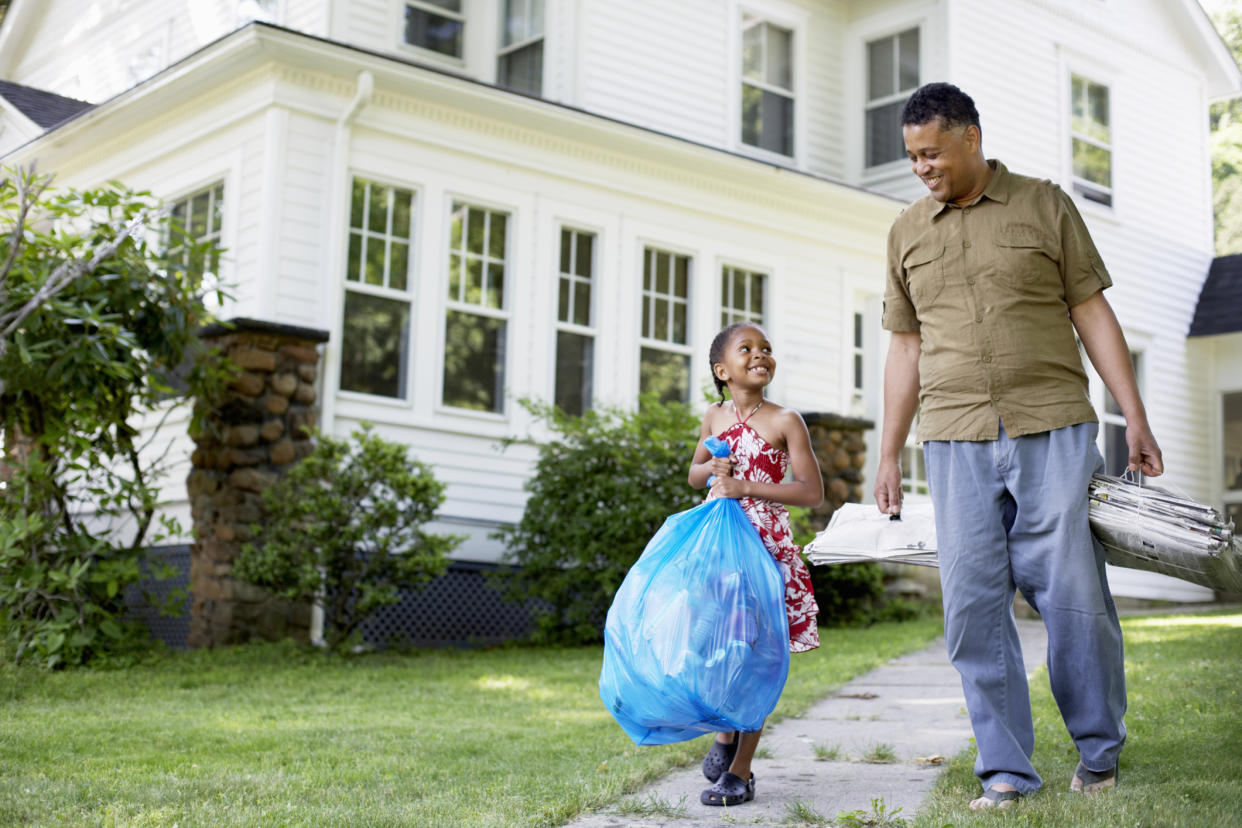Recycling FAQs: Why It’s Important For Black Communities

The phrase “reduce, reuse, recycle” was unavoidable during the aughts and continues to be pushed globally today as environmental challenges escalate. Recycling is a core part of discussing climate change and the race to save the planet. However, lacking diverse voices in that discussion has left the Black community out of recycling efforts. Black people need to participate in the practice, not just for the planet’s sake but also for the sake of Black neighborhoods.
The problem goes back decades
The connection between environmental degradation and social justice is intimate and goes back decades. A report attributes the problem to the “technoscientific” advancement of the 20th century and The Great Acceleration, both sources of the current environmental struggles. The Black community was exploited and marginalized to achieve both, leaving Black Americans condemned to neighborhoods and conditions that make them more susceptible to the devastating effects of climate change and other environmental challenges. Gentrification, redlining, zoning policies and plastic-producing facilities that are typically erected in Black and brown neighborhoods are just a few examples of how Black and brown communities have been used for capital gain and left without the resources to combat subsequent environmental damage, EarthDay.org reported.
Environmental degradation’s impact on Black communities today
The impact of climate change and other environmental degradation has devastating effects on the Black community. Improper waste management has ravaged Black communities around the U.S. In an op-ed for The Philadelphia Citizen, writer Charles D. Ellison referred to the rampant illegal disposal of trash in local Black neighborhoods as “an attack on the disinvested.”
“It represents one more manifestation of how vulnerable, mostly Black community spaces are relentlessly pissed on — because they are so neglected to begin with and because the city fails to invest in them,” Ellison wrote.
In 2016, University of Michigan and University of Montana researchers led by Paul Mohai and Robin Saha studied the impact of waste on Black and brown neighborhoods, discovering “a consistent pattern over a 30-year period of placing hazardous waste facilities in neighborhoods where poor people and people of color live.”
“Minorities and low-income communities are seen as the path of least resistance because they have fewer resources and political clout to oppose the sting of unwanted facilities,” they stated.
The mental and physical ramifications of this issue are undeniable. Several studies have shown that waste buildup and mismanagement in Black communities is connected to increased depression, stress and instances of self-harm.
What you need to know about recycling
Thankfully, all hope isn’t lost. Recycling at home is a significant first step to ensuring Black communities are environmentally conscious and safe. When disposing of trash at home, here are some important things to remember: paper, flattened cardboard, paperboard, glass bottles and containers, aluminum cans, plastic bottles, and jugs with narrow necks are all good to recycle, WKYC reported. Food, liquid, foam cups, containers and batteries should go in your garbage can.
Avoid putting bags in a recycling bin. According to EarthDay.org, grocery bags dissolve into potentially harmful microplastics that could hurt animals and the environment. Anything smaller than a credit card is also a recycling no-no. Items like straws, bottle caps, coffee pods, plastic cutlery and paperclips can jam recycling equipment.
Last but not least, make sure you understand your plastics and do your research. Rigid plastics are usually recyclable and are labeled by a numbered resin coding system — the higher the code, the less recyclable it is. Most recycling centers easily accept items with a “1” or “2” resin code. Anything higher than that is typically a struggle.
Recycling and being more environmentally conscious is imperative for Black communities. Putting in the effort to recycle a glass bottle instead of throwing it in the trash can help move toward happier and healthier Black neighborhoods while positively impacting the planet.

